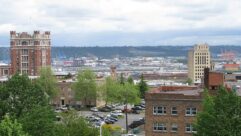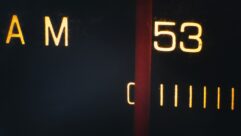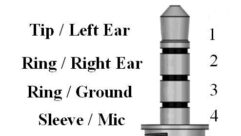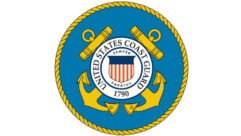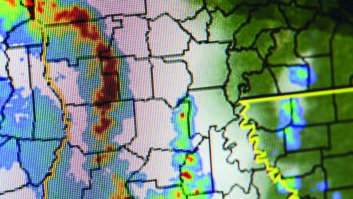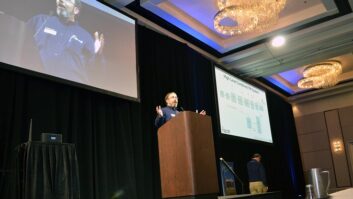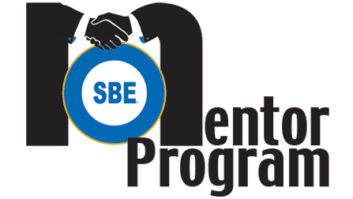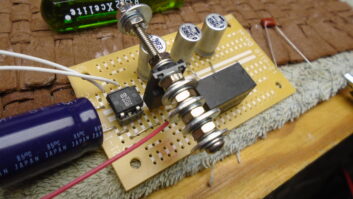In June, with many Americans, I found myself reflecting on the life and passing of Ronald Reagan. The 40th president of the United States engendered conflicting emotions in me.
How could I not be charmed by that biography?
He was a radio announcer; I was a radio announcer.
He was an actor; I’m an actor too, if only part-time.
He was president.
Well, I got two out of three.
I was a member of the Teenage Republican Club and the Young Republicans, back when moderates felt more comfortable in the GOP. Eventually I would switch registration to no party affiliation; but I had more than a passing interest in the Reagan career path.
I’m a history buff; having grown up conscious of the historical scope of the presidency – studying the death of Kennedy, watching the traumas of Vietnam and Watergate unfold – I viewed Reagan’s tenure with fascination.
He took office in 1981 and was president when I joined the U.S. work force. Reaganism was the background to the first decade of my professional life.
For the radio medium, his personality and policies left a complex legacy.
Classic Reagan
We know about his gifts in communication. Radio was indeed a building block for his career – in part because that’s how men of his generation campaigned, but also because he was smarter than other politicians. Few recently have used the power of the spoken word as effectively as he.
To advance his career, he conducted radio broadcasts and speaking tours sponsored by GE. After serving as governor, he stayed in the public ear in part through a series of daily radio messages.
Among his most famous one-liners came in the 1980 presidential primary and reflects his awareness of the power of the spoken word: “I paid for this microphone, Mr. Green.” It was classic Reagan. We forget that he got the moderator’s name wrong (Breen) and that fellow Republican George Bush was the one who suffered the consequences of that moment. Instead we remember Reagan’s forcefulness, his righteous indignation. The story is much like his presidency. Important details and consequences could get overlooked; but Reagan knew what he meant, and we knew what he meant.
I remember his first weekly radio address. The fact that Reagan would use radio to address Americans directly – in an era dominated by anchors on three television networks – was news in itself.
For a while, Reagan gave radio something of our own to help set the medium apart from others; this happens too rarely. The novelty of the weekly addresses would fade; but presidents of both parties have continued to use them as a platform.
People remember his power of persuasion. I saw him speak at a National Religious Broadcasters convention in Washington; the man had presence.
However, his folksy tone and his charm generally didn’t work on me as intended. I often felt I could see the manipulation, was aware of the strings he was pulling. My communication training taught me to sense when I was being “sold”; I often felt that way listening to Reagan. Yet I didn’t doubt his sincerity. This is part of his paradox.
Fans talk about his impact on the national spirit, and it’s true he helped people feel it was “OK to be an American again.” But I pity those who bought into the national malaise idea in the first place. I didn’t need Reagan to make me proud to be an American; to me the traumas of the 1960s and ’70s showed that our system is strong enough to survive, despite crises and erratic leadership, and I was proud of that before 1980.
Further, although he was known as kind and sincere, the revolution he launched is marked by mean-spirited, personal attacks; we hear it on the radio all the time. If Reagan lifted people up, his protégés too often have torn their fellow Americans down, turning the national debate into vitriol.
The current President Bush and many of his followers do not consider people like me – moderate, questioning Americans, sensitive about world opinion, careful about sending soldiers abroad, suspicious of secretive government – to be American patriots. That’s a Reagan legacy I deplore. Reagan made Rush possible.
Knowing what to say
I marveled at his talents and those of his speechwriters. When the space shuttle Challenger blew up in 1986, taking seven lives with it, I was sitting in the WDEL(AM) newsroom in Wilmingon, Del., and heard the alert come down the NBC Radio network. When Reagan addressed the nation about the disaster, I was glad to have a man like him deliver the national eulogy.
When Reagan stood at Normandy, I felt he represented me, an American, with honor.
His economic policies left their indelible impact on the radio business. Real momentum toward deregulation began here. The Telecommunications Act of 1996 is a legacy of Reaganism, although signed seven years after he left office by a Democratic president. If you have strong feelings about the impact of consolidation on radio, include Reagan when you dole out the blame or credit.
During his second term, the FCC eliminated the 60-year-old Fairness Doctrine requiring broadcasters to present programming about controversial issues and to offer a range of views – a loss to what made broadcasting unique and responsible to the public interest.
Reagan also talked to broadcasters directly. At the NAB convention in 1988, he spoke about foreign policy in a 20-minute speech touting his “peace through strength” approach. NAB managers may prefer to forget that a nuclear war protester rushed the stage in 1992 and shattered a crystal eagle award being given to the 81-year-old former president. (Reagan was not hurt. “He must have been a Democrat,” Reagan was quoted as saying.)
In fact NAB bestowed more honors on Reagan than on any other individual. He was given the National Radio Award, the Distinguished Service Award and the Spirit of Broadcasting Award; and he was inducted into the NAB Broadcasting Hall of Fame.
He was a man of stature, big enough not only to walk on the world stage but to dominate it. His impact on geopolitics is unquestionable. His term was more divisive at home than has generally been remembered.
Like Roosevelt, he knew how to use radio. He understood theater and ceremony. Like Roosevelt, he could be wildly popular and generate deep loathing. For all of the art behind his amiable style, we didn’t doubt Reagan was sincere.
Ronald Reagan was a gentleman. He respected the presidency; we cannot imagine him debasing it with peccadilloes as Bill Clinton did. He took a bullet in his job. He loved his country. He and Nancy engaged in a love affair for which we loved them both. I can only wish I might have his kind of strength and dignity when I reach his age, or now.
The warm tributes surrounding his funeral do not mask the contradictions. As a Cato Institute policy paper put it three years after he left office, “The 1980s gave birth to the second-longest peacetime economic recovery in the United States since World War II; yet, in the minds of many Americans, the 1980s were the antithesis of economic renewal. Like the 1920s, the decade of the 1980s was one of decadence.”
The Institute disagreed with that assessment, saying the 1980s in fact was a time of “renewed industrial competitiveness and modest growth that brought equally modest economic gains for most Americans.”
I question Ronald Reagan’s cultural legacy and his impact on the radio industry, among other things. What cannot be disputed is that he touched people. My college friend Ed Yuhas wrote to me today, and said it well:
“Even at college, I would go out of my way to watch his televised speeches. I knew at that time it may be the only time in my entire lifetime that a president would connect with me as much as he did. Our parents had FDR; we had Ronald Reagan. Perhaps history will show that Reagan was merely a very good president, not a great one like FDR. But none have come close since he left office. I only hope my own children will have their Ronald Reagan some day.”
